Truth: Undifferentiated and Substantive

By Dorit Bar-On and Keith Simmons

Like others commentators, we are struck by the timeliness of the discussion between Strawson and Evans. Their conversation offers a compact tour through some of the issues that still divide current viewpoints on truth. We find ourselves siding with Strawson on some of these, with Evans on others.
Evans is after an undifferentiated concept of truth that applies across languages, across statement forms, and across statement contents. We are, too.But for Evans, this concept is given by a thin interpretation of the Ramsey formula. On this interpretation, we are to understand the general idea of things being in the world as A states them to be via particular instances, such as: “A said that grass is green and grass is green”. This is the basis of the deflationary account of truth: truth is not a robust property, something shared by all and only truths; the predicate ‘true’ plays only a ‘logical’, or ‘expressive’ role; and the concept of truth is a thin concept that has no explanatory role. Here we depart from Evans.
We can, of course, agree on the centrality to truth of the T-sentences, such as
‘Grass is green’ is true if and only if grass is green.
And it is generally agreed that the predicate ‘true’ plays an important generalizing role: we can say “Everything the Pope says is true”, or “What Jane said yesterday is true”, and set aside the impossible task of producing an infinite conjunction or infinite disjunction. But, we think, truth has explanatory roles that go beyond disquotation and requotation.
Consider, for example, a familiar account of assertion: to assert is to present as true. Here, the use of ‘true’ cannot be eliminated or disquoted away: presenting as true is a particular way of presenting, so presenting p as true is not the same thing as presenting p. And the use of ‘true’ here – a theoretical one – is not directed at any particular truthbearer or class of truthbearers. Perhaps asserting that p is equivalent to asserting that p is true – here, we might appeal to ‘true’’s disquotational role. Not so with explanatory claims such as: to assert p is to present p as true, where truth is employed not as a device of disquotation, but rather as part of a characterization of what makes an act one of asserting.
For another example, consider the truth-conditions theory of meaning. Here again, the concept of truth is used as a key concept in an explanation of meaning. The theorist who proposes that a sentence’s meaning is given by its truth-conditions is not herself appending the predicate ‘true’ to some token truth-bearer; rather, she is linking the concept of meaning to that of truth-conditions. And one could go on. So we reject conceptual deflationism – we think that truth is a central concept that has an important explanatory role to play in connection with other concepts, including assertion and meaning. We’re inclined towards the view found in Strawson (1982) and Davidson (1996): truth is a primitive concept that can be illuminated by its relations to other concepts.
So, unlike Evans, we think that the concept of truth is robust. But like Evans, we are after an undifferentiated concept of truth, so let’s turn to this. Suppose we accept a truth-conditions theory of meaning, which will issue in meaning-specifying biconditionals, such as
(W) ‘Wasser ist nass’ is true if and only if water is wet.
Here the right-hand side picks out the worldly condition – water’s being wet – under which the left-hand sentence is true. But it matters how this worldly condition is specified. It would be bad if our theory yielded the biconditional
(W*) ‘Wasser ist nass’ is true if and only if H2O is wet
since (W*) is not meaning-giving. So we should distinguish worldly conditions as they figure in meaning-giving biconditionals – truth-conditions – from worldly conditions considered separately from meaning, that is, as conditions apt for investigation by the metaphysician.
The specification of truth-conditions is a product of a logico-semantic analysis that exhibits the truth-conditions of sentences as a function of the semantic values of their parts, their interaction with other sentences, how they embed, and so on. This kind of specification is not purely disquotational – a semantic analysis can uncover cover ambiguities and context-sensitivity, surprising logical forms and entailment relations (consider, for example, Davidson on action sentences). At the same time, a truth-conditional analysis will not always yield an analytic paraphrase – meaning-giving biconditionals can be disquotational. As Davidson puts it, “we ought not to boggle at ‘Bardot is good’ is true if and only if Bardot is good” (1967, p.317). Similarly, our semantic analysis may simply yield “‘7+5=12’ is true if and only 7+5=12”. These meaning-giving biconditionals are also ontologically modest – we can apply ‘true’ to evaluative and mathematical statements, and specify their truth-conditions, prior to settling the metaphysical nature of goodness or numbers. Truth can be applied to meaningful sentences of any language, regardless of form or content – truth is undifferentiated.
Now the metaphysician can step in, and ask what in the world (if anything) makes it true that water is wet, or that someone is good, or that 7+5=12. As Strawson says, “We really have an enormous range of types of fact …”. Here Strawson himself advocates distinguishing truth in the “primary sense” and truth in an “extended sense”, which suggests a certain pluralism about the concept of truth. However, it seems to us that the place to locate the plurality is in the world. A meaning-giving biconditional relates a sentence to a worldly condition, where this is part of a semantic enterprise employing a single concept of truth. We can then investigate that worldly condition. A realist view might emerge about water and wetness. An anti-realist view might emerge about goodness (e.g. that it is essentially dependent on our attitudes). And so on. We have a plurality of truth-makers, not a plurality of truth concepts or truth properties.Truth is undifferentiated, but there are many ways things are in the world.
About the Authors

Dorit Bar-On is a former Zachary Smith Distinguished Professor (UNC-Chapel Hill). She is currently Professor of Philosophy at the University of Connecticut, Storrs and the Director of the interdisciplinary research group Expression, Communication, and Origins of Meaning (ECOM). Bar-On has written more than 60 articles in philosophy of language and mind, metaethics, and epistemology. She is the author of
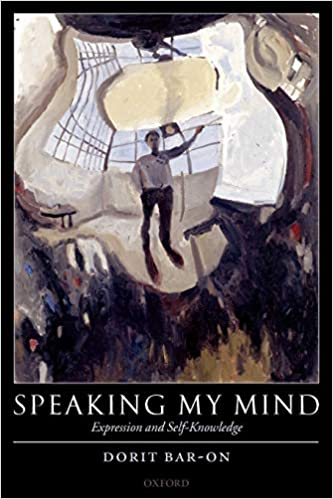
Speaking My Mind: Expression and Self-Knowledge (Oxford, 2004).
Bar-On is currently completing a draft of a volume on Expression and Self-Knowledge with Crispin Wright for the Wiley Great Debates Series, as well as a book titled Expression, Communication and the Origins of Meaning for Oxford University Press.
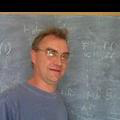
Keith Simmons is Professor of Philosophy at the University of Connecticut, Storrs. He has written numerous articles in the philosophy of logic and language, and he is the author of two books:
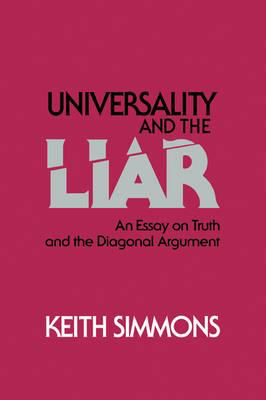
Universality and the Liar (Cambridge 1993)
and
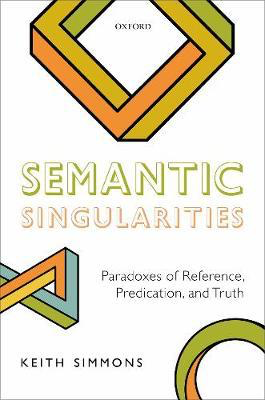
Semantic Singularities (Oxford 2018)
He is the co-editor, with Simon Blackburn, of
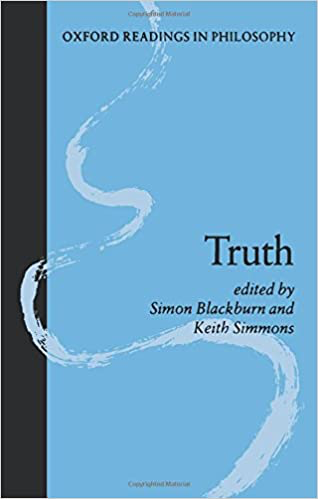 Truth: Oxford Readings in Philosophy (Oxford 1999).
Truth: Oxford Readings in Philosophy (Oxford 1999).
Bar-On and Simmons have a manuscript in progress tentatively titled If Truth Be Told.